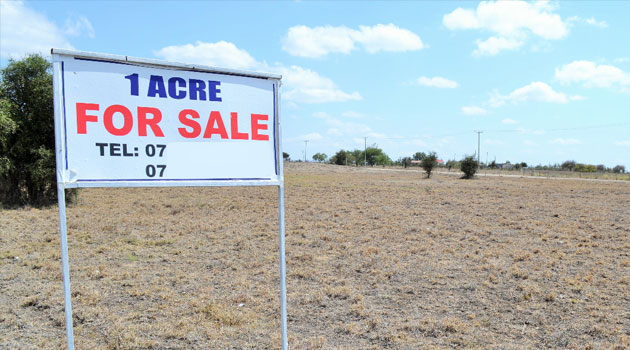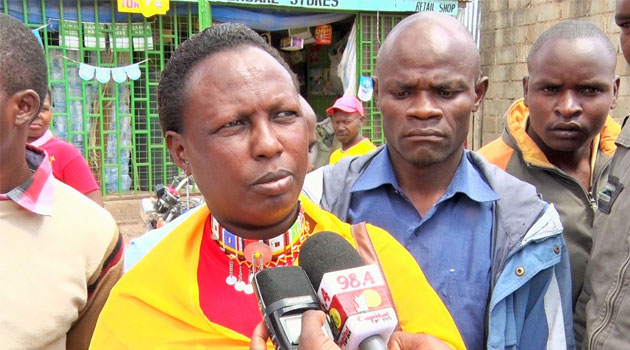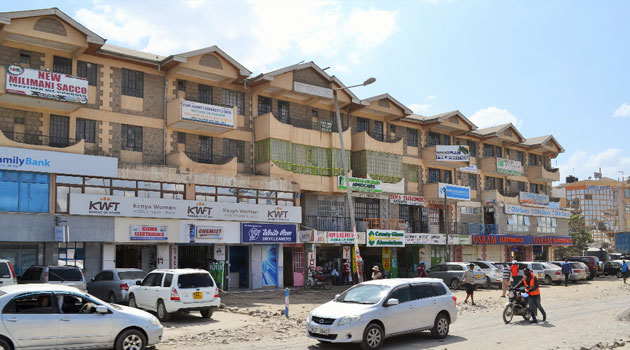
Some of those who spoke to Capital FM News say no person should bar them from selling their land but urge the government to regulate how the business is executed/MOSES MUOKI
NAIROBI, Kenya, Jun 20- The emotive land issue continues to elicit mixed reactions in the country, following the National Super Alliance presidential candidate Raila Odinga’s appeal to the Maasai community to stop selling theirs to other communities.
While some accuse him of inciting the Maasai, the former Prime Minister says he only cautioned the community against selling their ancestral land, a move he attributed to poverty and lack of awareness.
It is a topic that has been revived when the land business is booming, and on a ride along major highways, one won’t fail to notice billboards with enticing wording, appealing to Kenyans to buy land.
In Kajiado County, where the remarks were made, local residents agree that their economic position is largely to blame for the massive selling of land to other Kenyans, more so now that the cost of living remains high.
“Those we have sold their land, 70 per cent is because of poverty but the government can put regulation on land selling,” 56 year-old Agnes Kong said.
As a mother, she says “this generation” should not be selfish and sell the entire land.
“It is our children who will suffer, I have young children, and they will need a place to stay in future,” she asserted. “The government needs to put tight regulation…not every challenge warrants selling of land.”
Some of those who spoke to Capital FM News say no person should bar them from selling their land but urge the government to regulate how the business is executed.
“Our community has been marginalised for long and there is no way you will stop us from selling land and yet we need to have a good life like any other person. Some sell it to educate our children while others do it to settle their hospital bills,” Bernard Tima, a resident of Kajiado County said.

In Kajiado County, where the remarks were made, local residents agree that their economic position is largely to blame for the massive selling of land to other Kenyans, more so now that the cost of living remains high/MOSES MUOKI
But regulation is a move majority believe will stop those selling their land and thereafter squandering the proceeds without making any positive change to their lives, sentiments shared by even Kenyans from other regions.
While the Opposition leader has defended his sentiments as a sincere concern, the Jubilee Party cautions that such statements can easily create disharmony among communities.
– Peaceful Coexistence –
Despite fears that the remarks could easily spark violence, those interviewed by Capital FM News said locals have peacefully integrated with other Kenyans buying their land.
They even cited Kenya’s dark days of 2007-2008 when communities turned against each other across the country, claiming over 1,000 lives and leaving 600,000 others internally displaced, but Kajiado County remained peaceful.
“They bought that land at a free will; it is willing buyer willing seller policy. Kajiado is a peaceful place and politicians should not divide us. Every Kenyan has a right to live everywhere,” Tima said.
Another said, “we do not have any problem with our fellow Kenyans but the current situation need to be changed.”
Youths were however put on the spot for selling their maternal land, “to have a good life.”
– Concerns by Ranch Owners in Laikipia –
Miles away in Laikipia County, ranch owners have also been rattled Odinga’s previous remarks as quoted by The Times of London, in a report published on June 12.
“These ranches are too big and the people don’t even live there; they live in Europe and only come once in a while… There’s a need for rationalisation to ensure that there’s more productive use of that land,” the NASA flag bearer was quoted as having said.
But through the Laikipia Farmers Association, the ranchers says, that its members “are not in Europe. They are living and working very hard right here on the ground in Laikipia, because that is the only way to mind a successful business.”
All the ranches are owned by Kenyan citizens, whatever their racial origins, or by Kenyan companies or Kenyan trusts. “These are people who have constitutional rights to protection of their property and their lives.”
The organisation points out that “For Laikipia’s success to continue, local people need peace and the rule of law. Laikipia has suffered months of invasions by pastoralists from other counties. The incursions have caused the deaths of many local people and inflicted economic losses now running into the billions.”
They say members contributed Sh10 billion towards Laikipia County’s economy between 2014 and 2016.
“A recent economic survey revealed that in 2016 LFA members were employing 4,446 people on salaries of 1.14 billion shillings per annum. Taxes of 560 million were paid to the KRA and the County – proving our productivity through enterprise,” they association said in a statement.

Despite fears that the remarks could easily spark violence, those interviewed by Capital FM News said locals have peacefully integrated with other Kenyans buying their land/MOSES MUOKI
The Jubilee Government has issued hundreds of thousands of title deeds to Kenyans in a bid to solve the land question, but it seems the topic won’t go anytime soon.
It was a major topic of discussion in the 2013 elections as well.









































